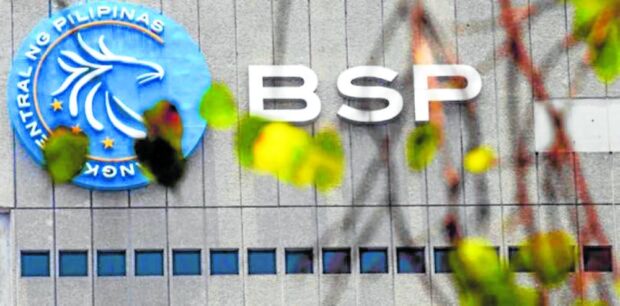MANILA —The Bangko Sentral ng Pilipinas (BSP) may start cutting rates in the third quarter as inflation is expected to show a more sustained downward trend by that time, American banking giant Citi said.
In an emailed commentary on Friday, Nalin Chutchotitham, Philippine economist for Citi, said the BSP would likely maintain its ultra-tight monetary policy settings through the first half of 2024 to further bring inflation down to the midpoint of its 2 to 4 percent target.
“We expect gradual rate cuts from [third quarter 2024] onwards as inflation shows a steady declining trend,” Chutchotitham said.
“We forecast [overnight borrowing rate] rate at 5.5 percent at end-2024, and at 4.5 percent at end-2025,” she added.
READ: PH December inflation eases to 3.9%
State statisticians on Friday reported that inflation had eased 3.9 percent in December, from 4.1 percent in November. This is the first time in 20 months that price growth eased back to the central bank’s 2 to 4 percent target range.
Upside risks
But despite the milder increase in prices last month, the BSP deems it necessary to “keep monetary policy settings sufficiently tight until a sustained downtrend in inflation becomes evident.” This was as the BSP missed its target for the second straight year after inflation averaged 6 percent in 2023. Meanwhile, rice price inflation accelerated for the second consecutive month in December to 19.6 percent, the fastest since March 2009.
That said, the central bank believes that “the balance of risks to the inflation outlook continues to lean significantly toward the upside.”
READ: Philippine rates to stay higher for longer to tame inflation, says BSP chief
“Key upside risks are associated with potential pressures from higher transport charges, increased electricity rates, higher oil prices, and higher food prices due to strong El Niño conditions,” the BSP said.
For Chutchotitham, the BSP would likely maintain a gap of at least 50 basis points between its own benchmark rate and the US Federal Reserve targeted rate to keep local yields competitive and support the peso.
She also expects domestic demand to “stay robust” and “remain a key driver” of economic growth despite the anti-inflation rate hikes from the BSP. The country’s gross domestic product growth, she said, would likely settle at 6 percent this year, from the projected 5.5 percent expansion in 2023.
“Low unemployment and minimum wage hikes would support labor income; continued expansion of income remittances and easing inflation would also support household consumption,” Chutchotitham said. —Ian Nicolas P. Cigaral INQ


